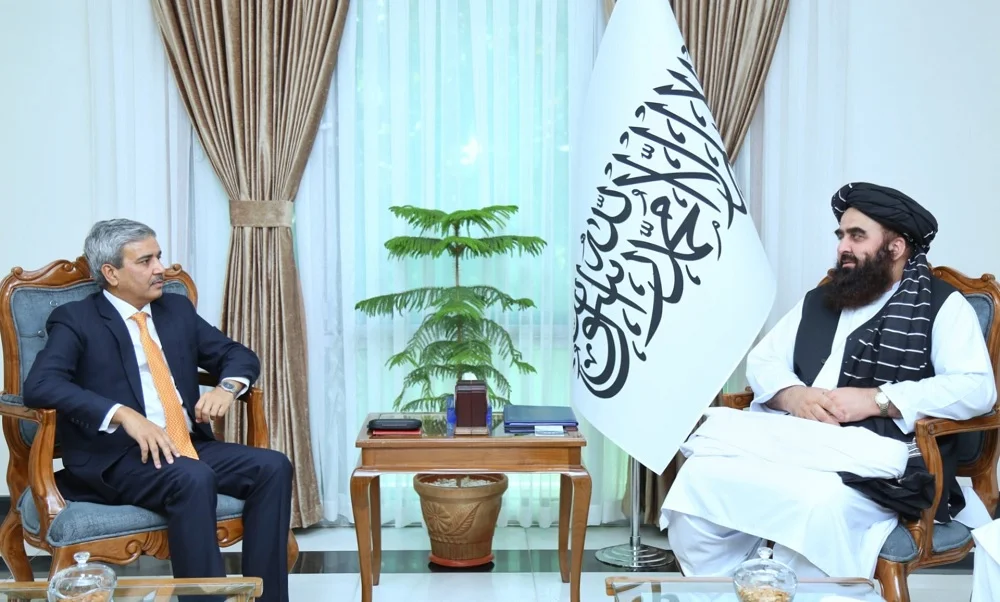JP Singh, Indian foreign ministry’s joint secretary for the Pakistan-Afghanistan-Iran division, has met with Acting Foreign Minister Amir Khan Muttaqi in Kabul.
The two sides discussed political and economic relations between Afghanistan and India, and people’s movements, the Afghan foreign ministry said in a statement.
Acting Foreign Minister Amir Khan Muttaqi expressed hope that relations between India and Afghanistan would expand in various fields. He stressed that to develop trade relations, Indian visa facilities should be increased for Afghan citizens, especially businesspersons.
He also thanked India for its humanitarian aid to Afghanistan and called India’s pledges in the development sector promising.
According to the statement, JP Singh said that relations with Afghanistan are important for India and have an ancient history.
The Indian diplomat said that along with humanitarian aid to Afghans, India has also started development assistance to Afghanistan and is engaged in technical discussions with relevant Afghan institutions. JP Singh stressed that the development of relations between the two countries is important, adding that in the near future, negotiations will be held between technical delegations of regional countries including Afghanistan and India on the Chabahar port. He also promised to increase Indian visa facilities for Afghans.
Also See: Maldives recalls diplomat to Pakistan over meeting with Afghanistan envoy
This news is sourced from [Ariana News] and is intended for informational purposes only.


![Afghan men search for victims after a Pakistani air strike hit a residential area in the Girdi Kas village, Nangarhar province on February 22, 2026. [Aimal Zahir/AFP/Getty Images]](https://southasiatimes.org/wp-content/uploads/2026/02/gettyimages-2262391441.webp)



